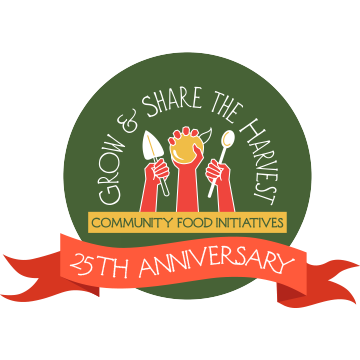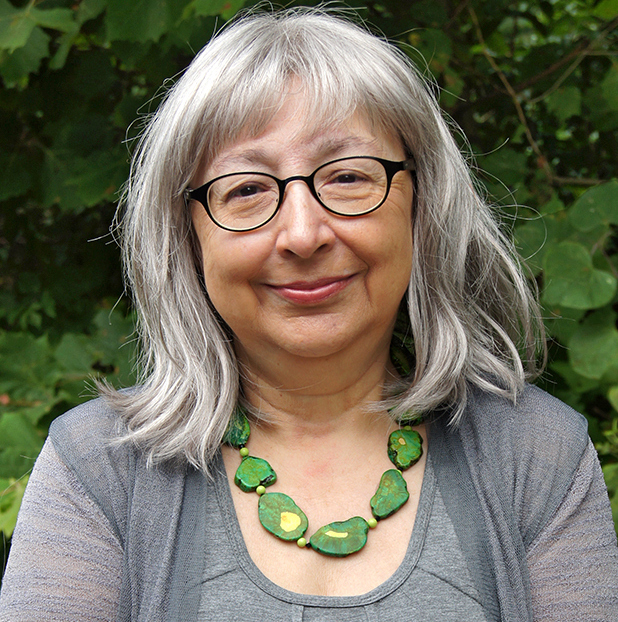 For the past 25 years, Community Food Initiatives has been an integral part of the local
For the past 25 years, Community Food Initiatives has been an integral part of the localfood economy. In celebrating this milestone for our organization, we are reconnecting
with some of our past staff, and we will be sharing their stories over the next several
months and “Exploring our Roots.”
Leslie Schaller, currently the Director of Programs at ACEnet and Business Director at
Casa Neuva, has been an integral part of the local food economy for the last few decades.
Leslie played a lead role in founding Community Food Initiatives while she was working
to develop ACEnet’s Food Ventures Center. She continues to work with CFI through
collaborative funding opportunities with ACEnet and other organizations. Read about
Leslie’s longstanding relationship with CFI in the interview below!
CFI: Tell us the origin story of Community Food Initiatives (CFI).
LS: “ACEnet started in 1985, and after we opened these first two business incubators in
1991, we started going to conferences and seeing this new kitchen incubator model. June
Holly, the Executive Director of ACEnet, discussed this because we had always heard
farmers talking about the need for creating value added products and the challenges of
doing that. So the kitchen incubator model seemed like a great idea, and we started to
convene farmers to talk about ACEnet moving forward with it, and that’s when we
started to create CFI. Early on, we thought it would be come a separate cooperative and
run, own, and operate the food ventures center. But, between 1992-1995, we realized CFI
wasn’t ready to shoulder the responsibility of the management of the facility. CFI
remained an anchor tenant in the food ventures center, and began to diversify in their
programmatic interests. Many early Board Members were interested in economic access
and seeing a local food economy grow at a variety of levels beyond this food ventures
and kitchen incubator concept. A lot of what happened between 1992-1995 was an
exploration of what CFI’s role was and where the organization was headed. I wrote a
number of grants for CFI’s development during that time. By 1995, I was ready to pass
the baton, and CFI became a separate 501(c)3, and that’s when Porter Dunaway became
the Executive Director.”
CFI: What has been your role and contribution to CFI? When?
LS: “During all the changes of different staff, directors, and Board members, my main
role has always been to help secure funding to keep CFI’s budgets a little less fragile. My
role throughout this 25 year history has been more about governance and securing the
financial underpinnings of keeping the organization running.”
CFI: What is your favorite memory of your time working at CFI?
LS: “I’m more of a strategist, so it’s hard for me to say what moment stands out. In
terms of CFI’s impact in the community, the YEAH! Kids program is particularly
meaningful for me. Even though it has only touched a small number of kids since it’s
launch, the program has such a depth of connection with those individual kids and
families. It’s an incredibly investment in seeing the change we want to see animated in
our local food economy. Seeing those kids at the AFM, or in the kitchen incubator here
doing processing I really appreciate that longitudinal investment.”
CFI: What do you think CFI contributes to the community?
LS: “I think about CFI’s contribution in terms of developing capital, whether it is
individual, intellectual, social, built, natural, cultural, financial, or political capital. When
I think about the capitals that CFI has helped develop in the 25 years that they have been
in action, there is tremendous investment in helping individuals figure out where they fit
in the local food system. There is also a lot of intellectual capital produced at the
workshops and programs. CFI takes the homegrown wisdom and skills of community
members and preserves and respects that knowledge while getting it out to the
community. We also build networks here; the social fabric of this local food economy
continues to grow leaps and bounds.”
CFI: How have you seen CFI change over time?
LS: “A lot of CFI’s programs have unfolded based on the interests of our Board Members
and staff, and there was a lot of turnover in those people in the early years. During the
time when CFI had Co-Directors and was under the leadership of Chris Chmiel and Mike
McNiff, that’s when a lot of the core CFI programs started to be developed, like the
Gardening Angels program and the Community Gardens. Then much later, when Keith
Peterson came on [in 2007], that’s when the Donation Station was born. There was a little
wax and wane sometimes in terms of the programs from the late-1990s onward. CFI has
always been dependent on a variety of different sponsorships and smaller grant
investments, so sometimes a program came into the spotlight because it was funded. But
throughout the last 25 years, there has always been an interest in creating more
community engagement at the social and economic level in Southeastern Ohio. To a large
degree, that sense of resilience and development at all levels and the question of how to
we use the assets and homegrown skills that we have because of our Appalachian legacy
has been a part of all of CFI’s programs.”
CFI: What do you do now and how has CFI influenced your work?
LS: “What I continue to gravitate towards is looking at a lot of this work in the context of
Southeastern Ohio and Appalachian counties, but to think about this work in a much
larger network and systems map. A lot of my work with ACEnet in recent years is doing
more consulting and writing grants for other organizations. I see what we’ve learned in
this area and see how some of that trial and error can be replicated elsewhere.
Where do you see CFI going in the future?
“I’ve really stepped away from the organization; I’m no longer on the Board, but
throughout CFI’s history, I’ve been a Board Member for about 15 years. I think it’s up to
the Board and staff there now to lead the direction. Of course, you want there to be less
anxiety about things like securing funding and staff, but from my point of view, looking
at the partnerships with other agencies working on food security, there are opportunities
for CFI to continue to collaborate with other organizations and grow.”



Leave A Comment